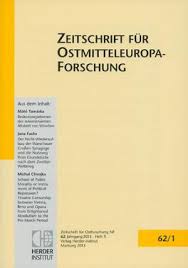In the Spirit of Perestroika? Swedish Involvement in the Soviet Baltic Economies, 1988-1991
In the Spirit of Perestroika? Swedish Involvement in the Soviet Baltic Economies, 1988-1991
Author(s): Lars Fredrik StöckerSubject(s): Business Economy / Management, Economic history, Economic policy, Government/Political systems, International relations/trade, Post-War period (1950 - 1989), Transformation Period (1990 - 2010), Cold-War History
Published by: Verlag Herder-Institut
Keywords: Cold War; neutrality; Baltic independence; East-West trade; socialist economics; economic transition; regional markets;
Summary/Abstract: In the literature on the Soviet Baltic republics’ path to independence, Sweden usually figures among the rather cautious Western players. The social democratic government of Ingvar Carlsson did indeed tend to avoid any clear commitment to the Baltic cause due to concerns about its relations with Moscow and the credibility of Sweden’s neutrality policy. Underneath the diplomatic level, however, a whole new infrastructure of Swedish-Baltic economic linkages emerged at the peak of perestroika, paving the way for the extraordinarily close trade and business cooperation between Sweden and its Baltic neighbors from 1991 onwards. Largely unrestricted by diplomatic constraints, Swedish entrepreneurs, investors and advisors established numerous links to the evolving Baltic business environment, which at the time was promoted as a bridge to the vast Soviet market. The reformoriented Soviet Baltic governments, on their part, saw the emerging ties with Swedish enterprises, trade organizations and business schools as a way to gradually reintegrate the republican economies into the structures of Western trade and business. Cooperation with Swedish investors and economists, which to a large degree was orchestrated and coordinated by Swedes with Baltic roots, indeed played a key role in the process of implementing an increasingly radical pro-market agenda. The Nordic connection facilitated the early transfer of market thinking and practices and kicked off a long-term rearrangement of economic linkages across the Baltic Sea, securing Sweden’s dominant position in the region for decades to come. Taking into account these emerging patterns of transnational cooperation thus contributes to a more nuanced understanding not only of the post-Soviet economic transformation, but also of the birth of a new regional economic order that accompanied the geopolitical changes.
Journal: Zeitschrift für Ostmitteleuropa-Forschung
- Issue Year: 68/2019
- Issue No: 4
- Page Range: 577-602
- Page Count: 26
- Language: English

